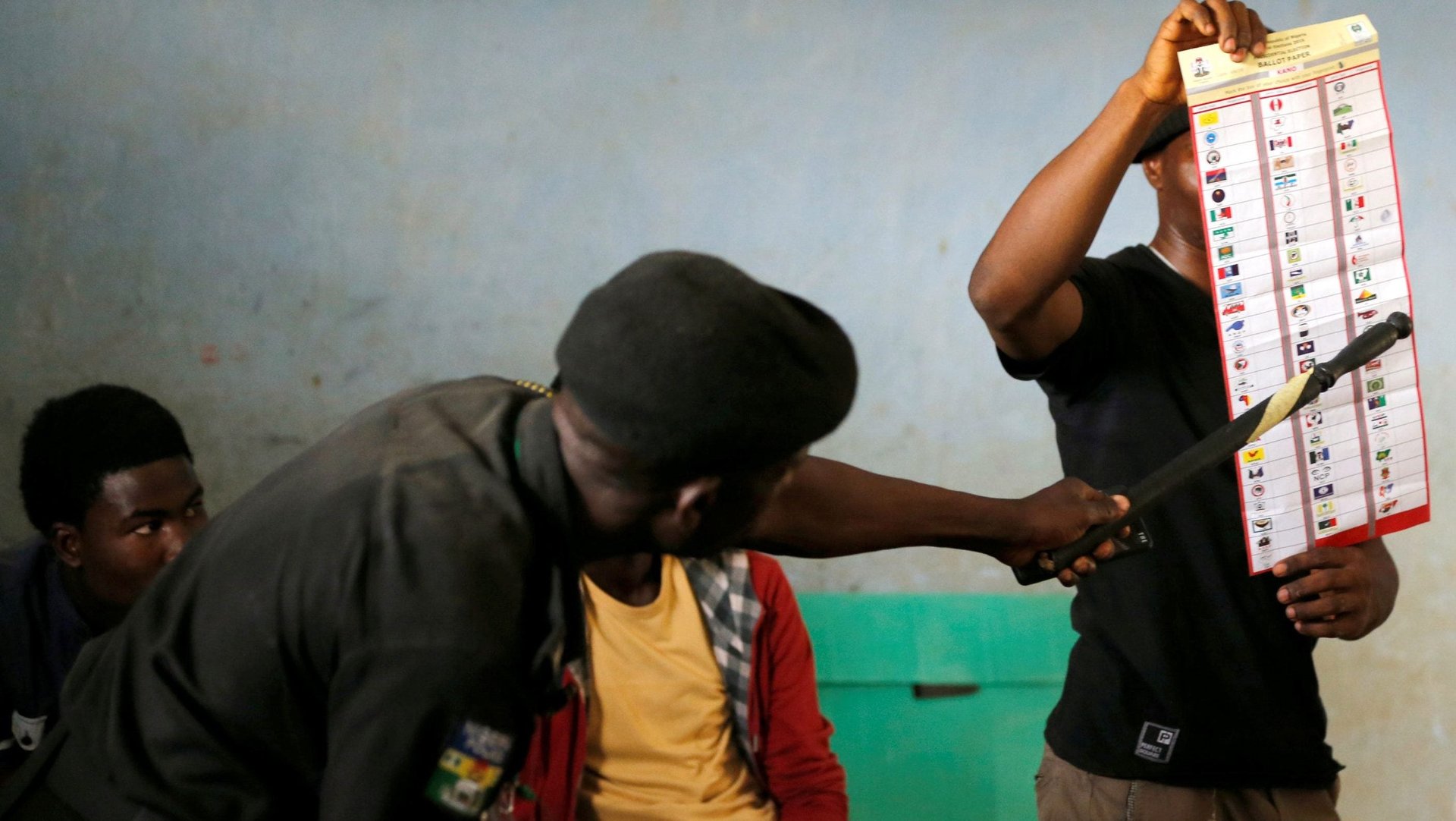How a little known New York pastor won the third highest votes in Nigeria’s election
In the last two elections, the contest for Nigeria’s presidency has felt like it’s been split into two different races.


In the last two elections, the contest for Nigeria’s presidency has felt like it’s been split into two different races.
While the country’s two dominant parties—the All Progressives Congress (APC) and the People’s Democratic Party (PDP)—have won a vast majority of the votes, the country’s several other parties largely scrap to finish third. As Quartz Africa has reported, the dominance of two major parties makes the chance of a “third party” candidate winning the vote very slim.
Yet, even the race of the underdogs threw up a surprise this year with a little-known US-based pastor, Nicholas Felix of the People’s Coalition Party (PCP), finishing third behind the top two parties. The 37-year old pastor is originally from Edo state in southern Nigeria and holds a doctorate degree in divinity from CICA International University and Seminary in New York. He had little political experience when moved to the United States after winning a US visa lottery in 2003 and now leads New York-based church, Miracle Center International.
Felix’s win is both surprising and embarrassing for the much higher profile candidacies of other “third party” aspirants, including Kingsley Moghalu, a former deputy governor of Nigeria’s central bank, Fela Durotoye, a popular motivational speaker and coach and Yele Sowore, activist and publisher of Sahara Reporters. None of them finished in the top seven positions.
For his part, Felix has described his unexpected third place finish as sign of “a progressive adjustment in paradigm” in Nigerian politics.
But most political analysts have a much more plausible theory: voters might have made a mistake.
Given that ballot papers for presidential elections in Nigeria list all the parties fielding candidates (73 in this case) in alphabetical order, Felix’s PCP party was placed just above the leading opposition party PDP (People’s Democratic Party), led by former vice president Atiku Abubakar. Further, the colors of PCP’s party logo are exactly the same as the PDP’s. And with party logos, rather than candidate photos or names listed on the ballot paper, PCP’s conspicuous placement and colors are likely to have been a big factor.
But regardless of how his votes came about, Felix’s “victory” is Pyrrhic, as the elections were the latest reminder of just how much work third party candidates need to do to match the two major parties. One often suggested way to try to do that is for third party candidates to pool resources and form a coalition. It’s a move that has borne some success in the past: the ruling APC was itself formed after a merger of four independent political parties two years before it won the 2015 presidential elections.
Sign up to the Quartz Africa Weekly Brief here for news and analysis on African business, tech and innovation in your inbox